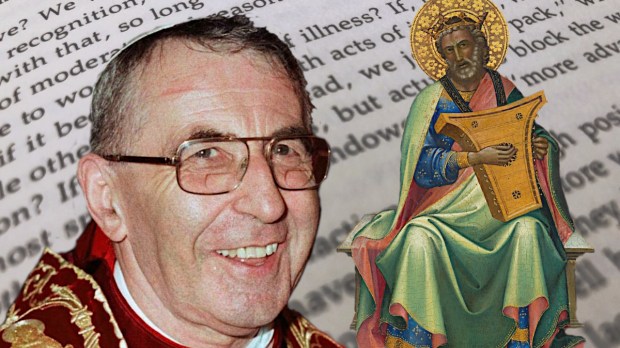John Paul I had a very jovial personality matched with a deep spiritual life. Both of these attributes are on full display in the few writings we have from him.
In particular, these attributes can be seen in a compilation of letters he wrote between 1971 and 1975 for the Catholic newspaper Messaggero di S. Antonio. He wrote to a variety of characters, including historical figures, authors and saints.
He even wrote to biblical figures, such as King David, addressing them as if they were alive today.
John Paul I begins the letter extolling King David’s piety, while also mentioning the many struggles he had:
The Bible presents the various components of your personality: poet and musician, brilliant officer, a shrewd king, something involved — alas! not always happily — with women and in harem intrigues with the consequent family tragedies; and, nevertheless, a friend of God, thanks to your notable piety, which kept you always aware of your insignificance in the face of God. This last note I find particularly likable.
Thoughts of pride
John Paul I highlights King David’s words on pride in the Psalms and how he (as a bishop) struggled with pride:
“Lord, I wish my heart not to pursue thoughts of pride!…” Too little for a bishop! you will say. I know, but the truth is that I have conducted my pride’s funeral a hundred times … and a hundred times I have seen it rise again.
Christ’s donkey
In particular, John Paul I mentions how he tries to view himself as Christ’s donkey, to help humble himself:
When I am paid a compliment, I must compare myself with the little donkey that carried Christ on Palm Sunday. And I say to myself: If that little creature, hearing the applause of the crowd, had become proud and had begun — jackass that he was — to bow his thanks left and right like a prima donna, how much hilarity he would have aroused! Don’t act the same!
John Paul I continues throughout the letter reflecting on humility and how King David’s words in the Psalm inspire him to practice that virtue.
He ends his letter by writing, “This is the fulfillment of Christian humility. It does not end in pusillanimity, but in courage, in enterprising work, and in abandonment in God!”



